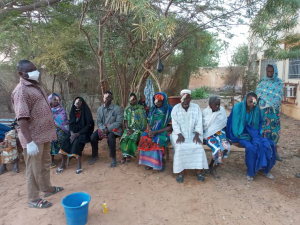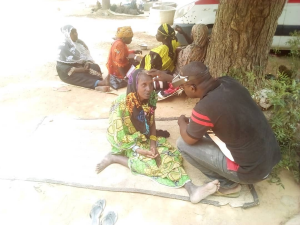 The United Nations General Assembly adopted on July 23, 2021 Resolution A/75/L.108 by which the international community commits to provide eye care to the 1.1 billion people living with avoidable vision loss for the year 2030. Approved with the unanimity of the 193 member countries, it is the first agreement designed to address avoidable vision loss that is adopted at the United Nations and accredits eye health as part of the Sustainable Development Goals (SDG); it has been even stated that next review includes new goals on eye care.
The United Nations General Assembly adopted on July 23, 2021 Resolution A/75/L.108 by which the international community commits to provide eye care to the 1.1 billion people living with avoidable vision loss for the year 2030. Approved with the unanimity of the 193 member countries, it is the first agreement designed to address avoidable vision loss that is adopted at the United Nations and accredits eye health as part of the Sustainable Development Goals (SDG); it has been even stated that next review includes new goals on eye care.
The resolution establishes a vision goal for all linked to the 2030 Agenda, and countries commit to guarantee full access to eye care services for their populations and that eye health is part of their nation’s path towards achieving the Sustainable Development Goals. It also creates new expectations for international financial institutions and donors to provide targeted funding, especially to support countries in fighting avoidable vision loss. And for the United Nations to incorporate eye health into its work.
The plan will mean that by 2030, the 1.1 billion people living with vision loss in the world will have access to support and treatment. But in order to achieve this goal, it will be key that governments and international institutions act from now on to fulfill their new commitments.
When commenting on the adoption of the Resolution, the ambassador Aubrey Webson, permanent representative of Antigua and Barbuda to the United Nations, and founding co-chair of the Friends of the United Nations Vision group, stated: “An eye test for a child can be the difference between inclusion or exclusion; a pair of prescription glasses, the difference between access to information and the search for a livelihood or not. A corrective vision treatment, the difference between improving sight or losing it completely. The gift of sight for 1.1 billion people living with preventable vision loss is within reach if we ensure that world leaders abide by this moment”.
 And ambassador Geraldine Byrne Nason, permanent representative of Ireland to the United Nations, member of the UN Security Council and co-chair of Friends of Vision commented: “If we want to meet the Sustainable Development Goals on gender equality, we must recognize that lack of access to eye care has a disproportionate impact on women and girls. This can have devastating consequences for girls’ education, not to mention women’s participation in the workforce, poverty, child marriage and the role of women in safeguarding the health and education of their own children”.
And ambassador Geraldine Byrne Nason, permanent representative of Ireland to the United Nations, member of the UN Security Council and co-chair of Friends of Vision commented: “If we want to meet the Sustainable Development Goals on gender equality, we must recognize that lack of access to eye care has a disproportionate impact on women and girls. This can have devastating consequences for girls’ education, not to mention women’s participation in the workforce, poverty, child marriage and the role of women in safeguarding the health and education of their own children”.
The Eyes of the World Foundation, as a member of the International Agency for the Prevention of Blindness (IAPB), ratifies the words of Peter Holland, general director of the IAPB, on the adoption of the resolution: “The sector of eye health has long believed that quality eye health is critical for the world to achieve the Sustainable Development Goals and this resolution is the testament to great work. IAPB members will now work tirelessly to support governments in enacting this resolution and hold them accountable to ensure that no one is left behind”.